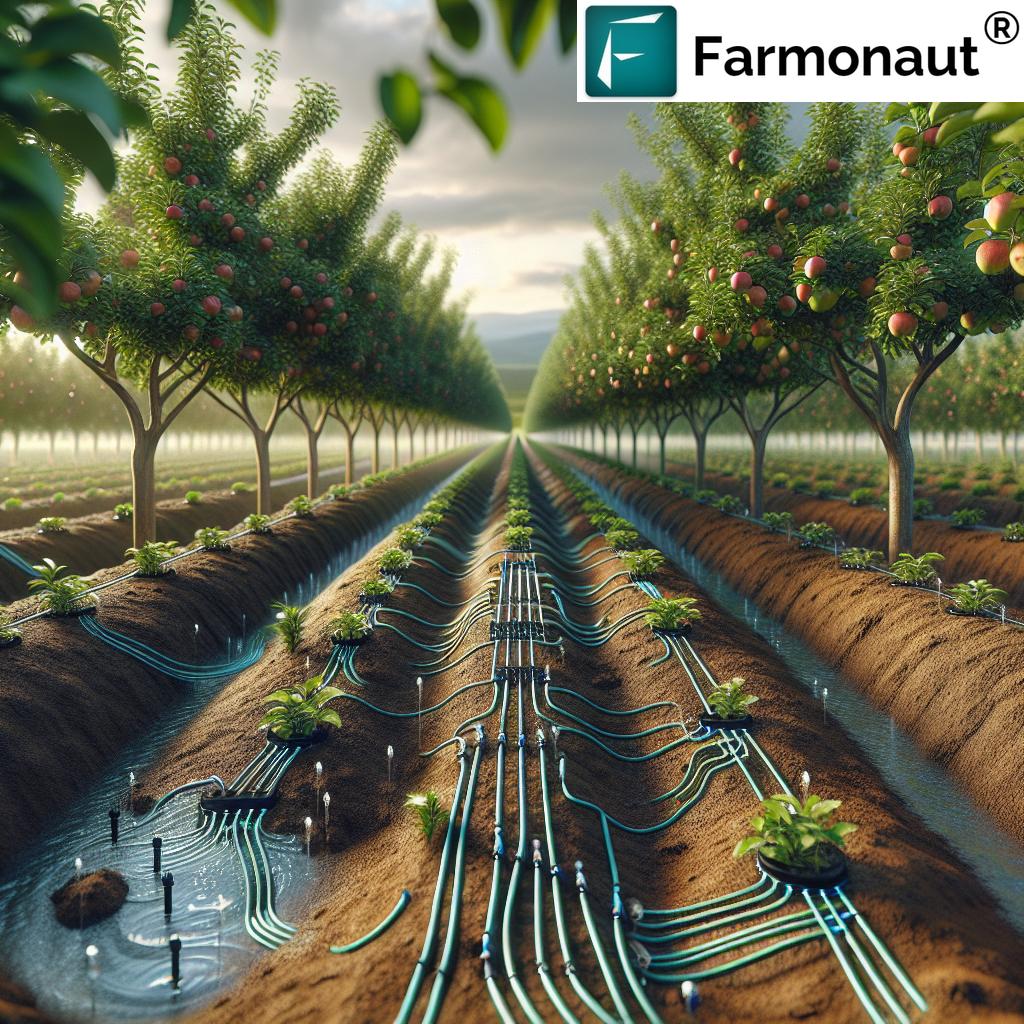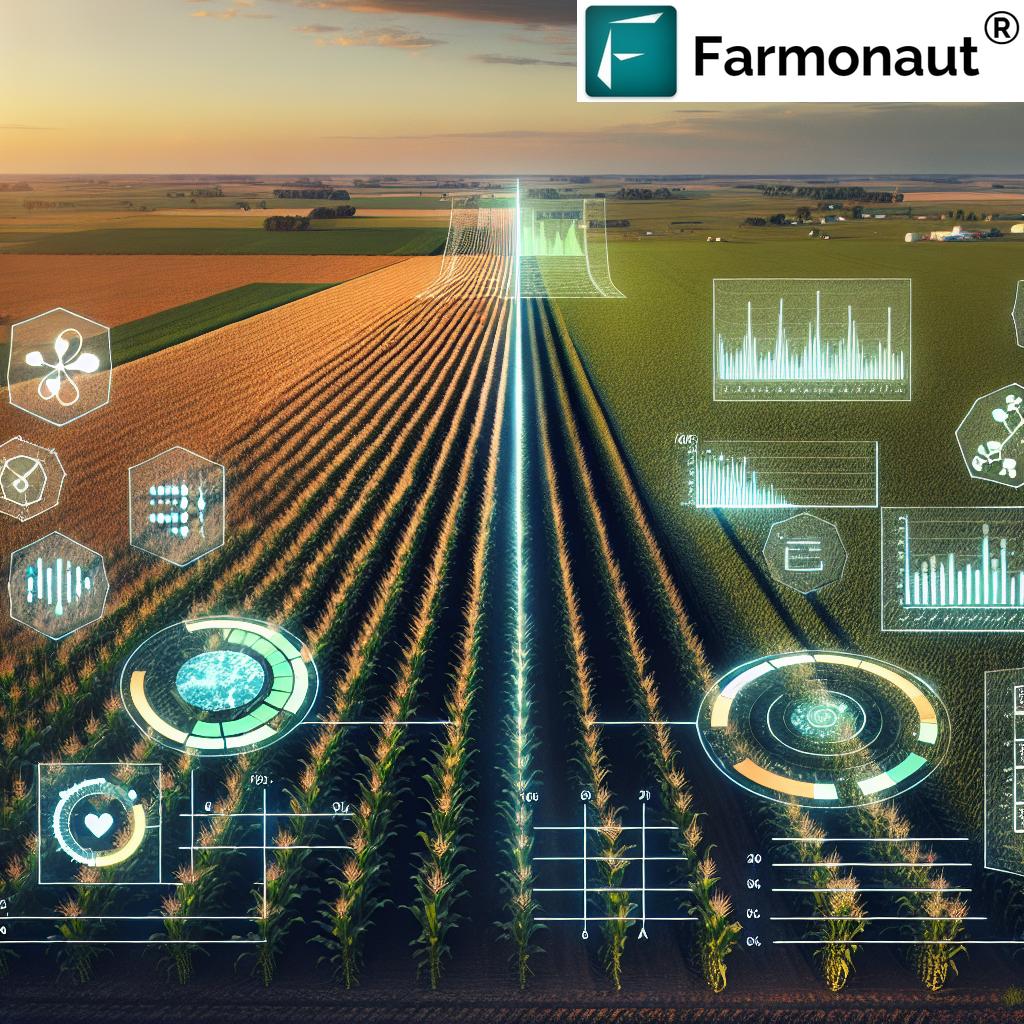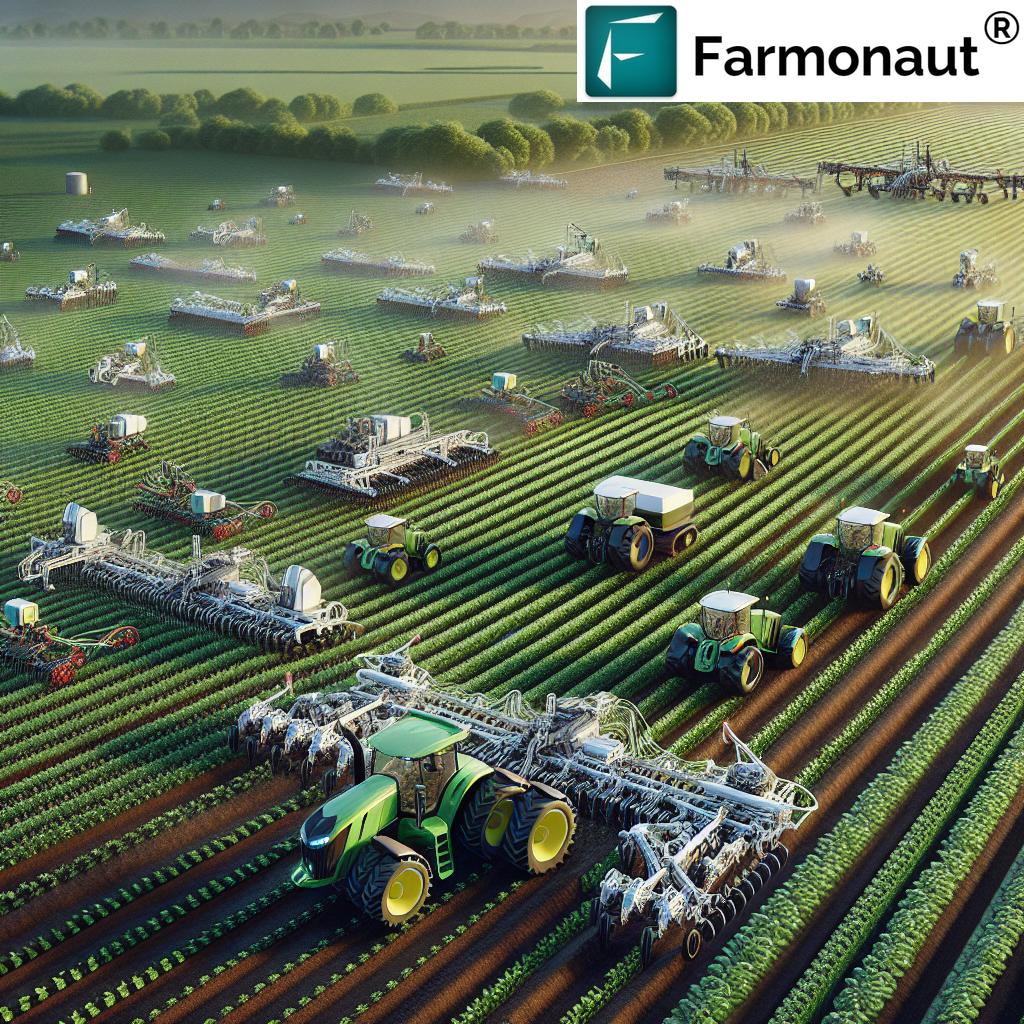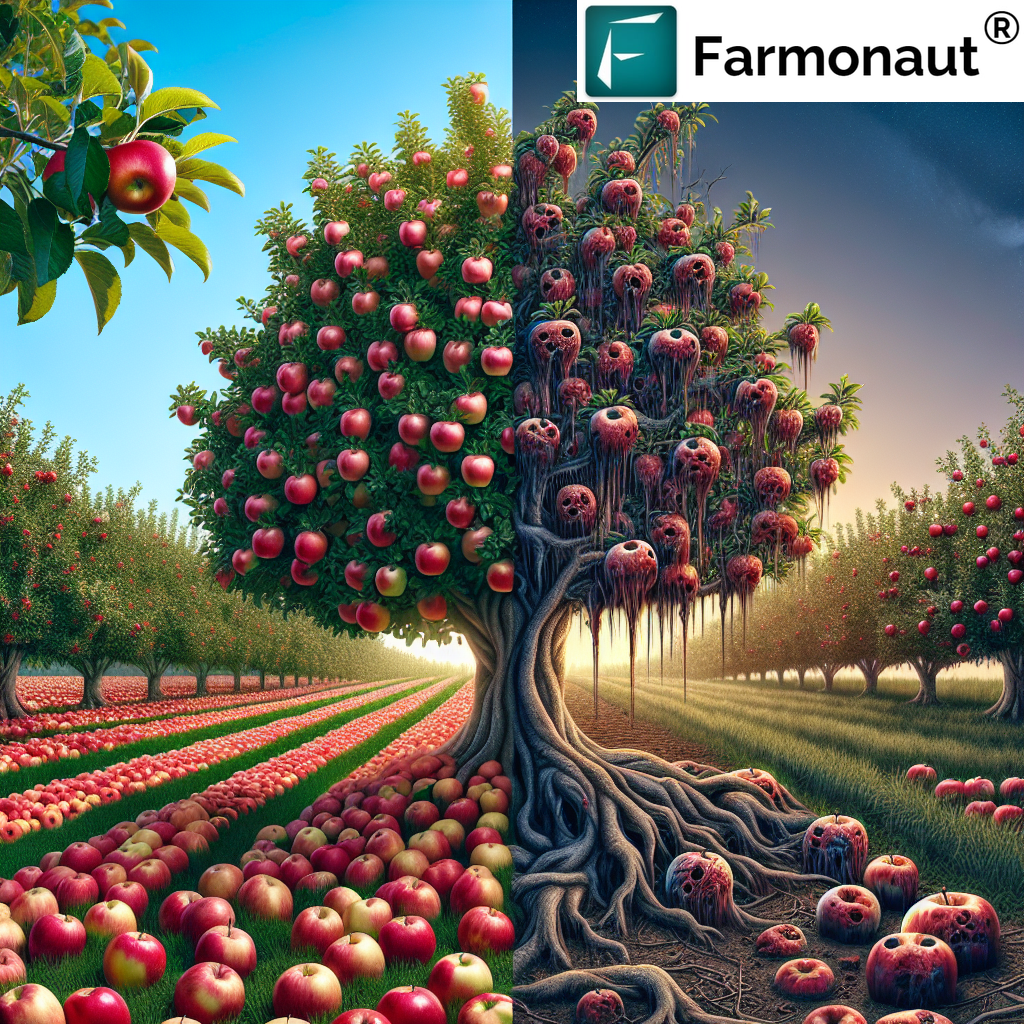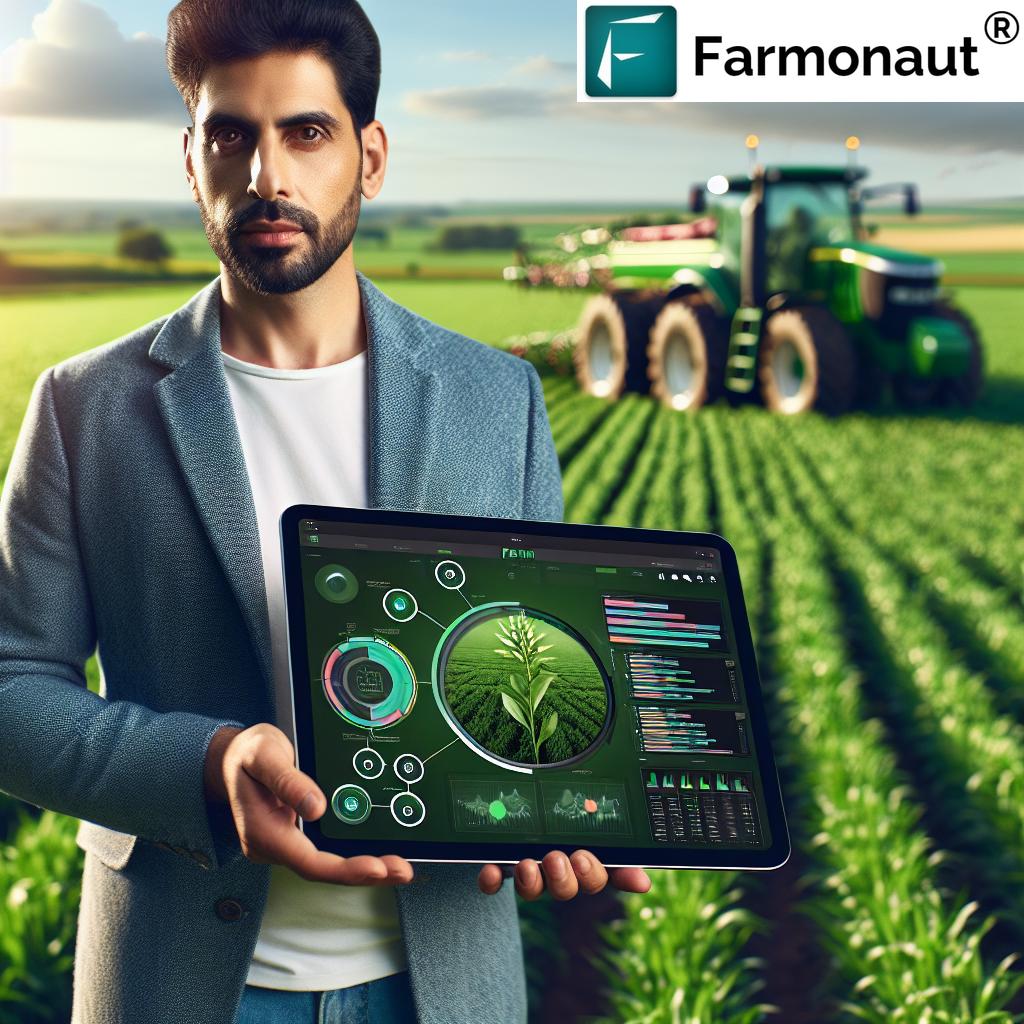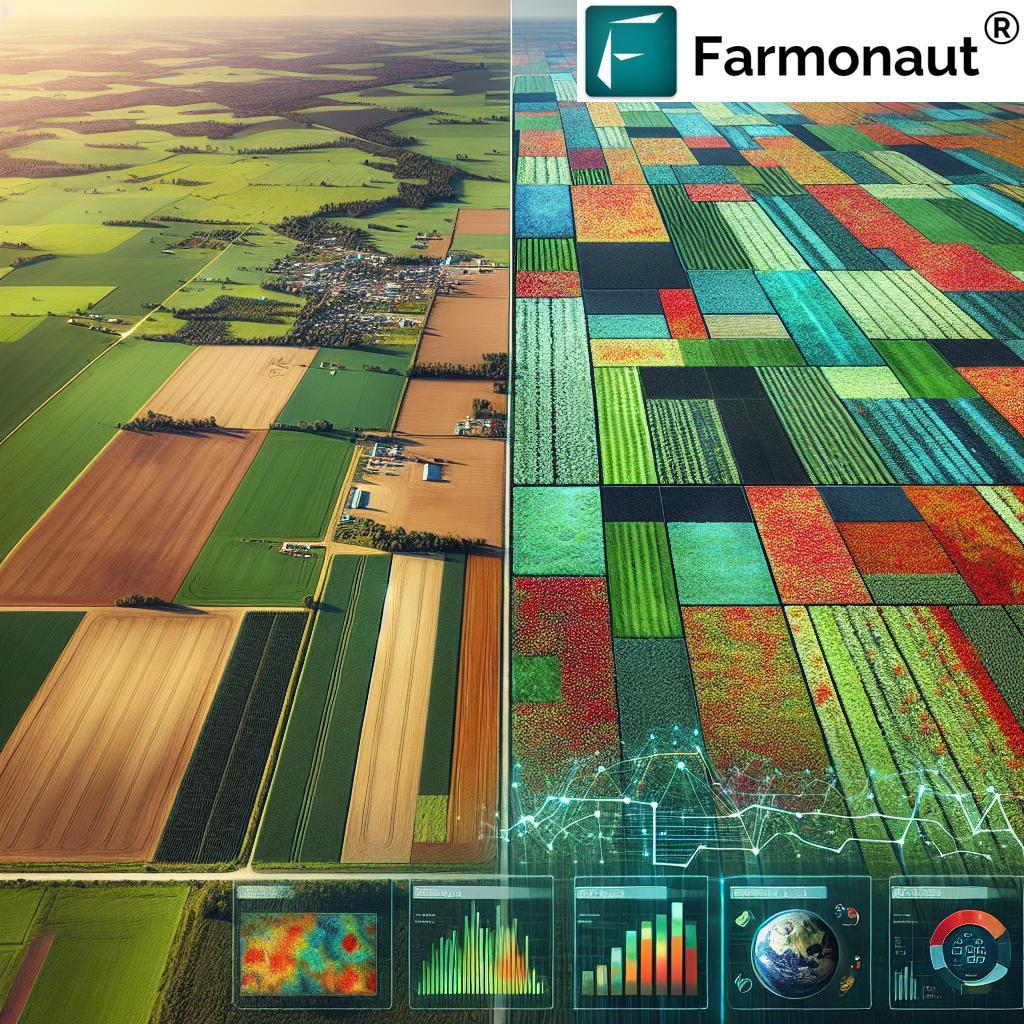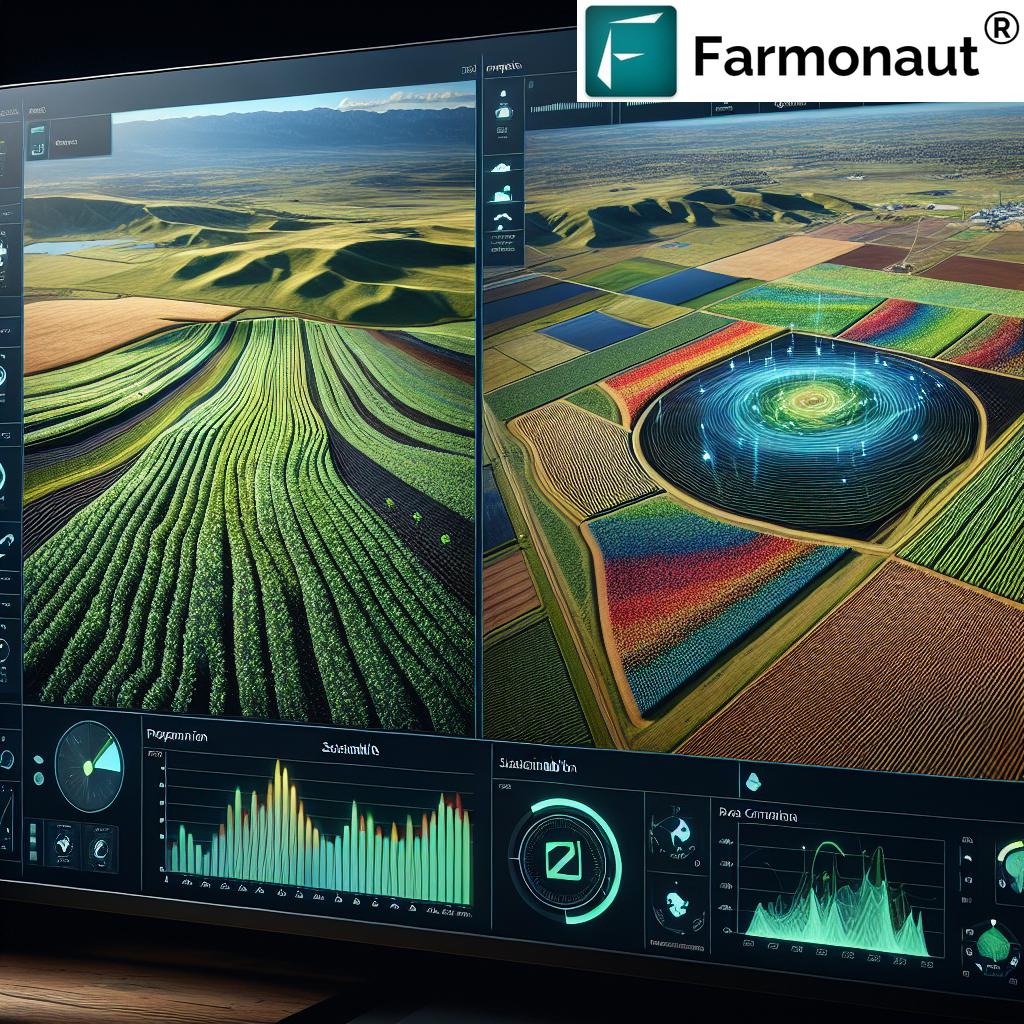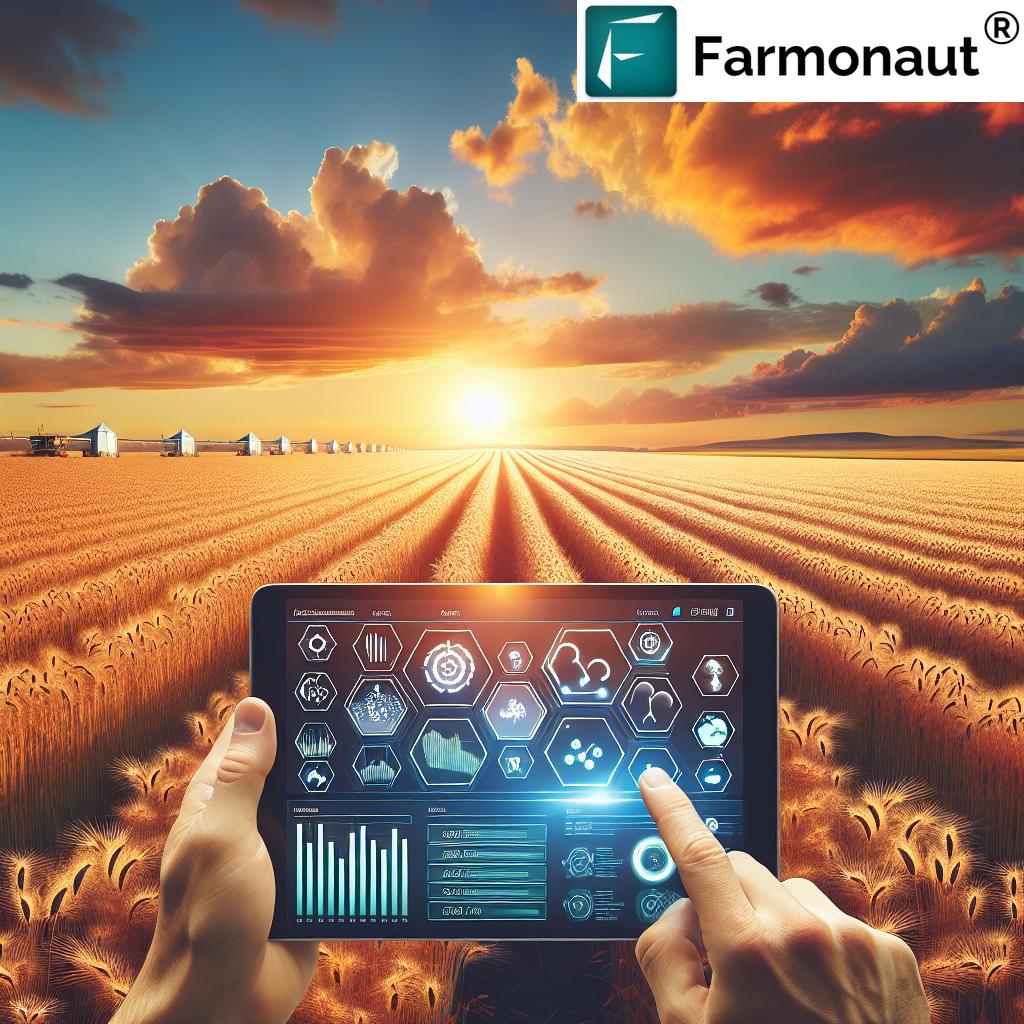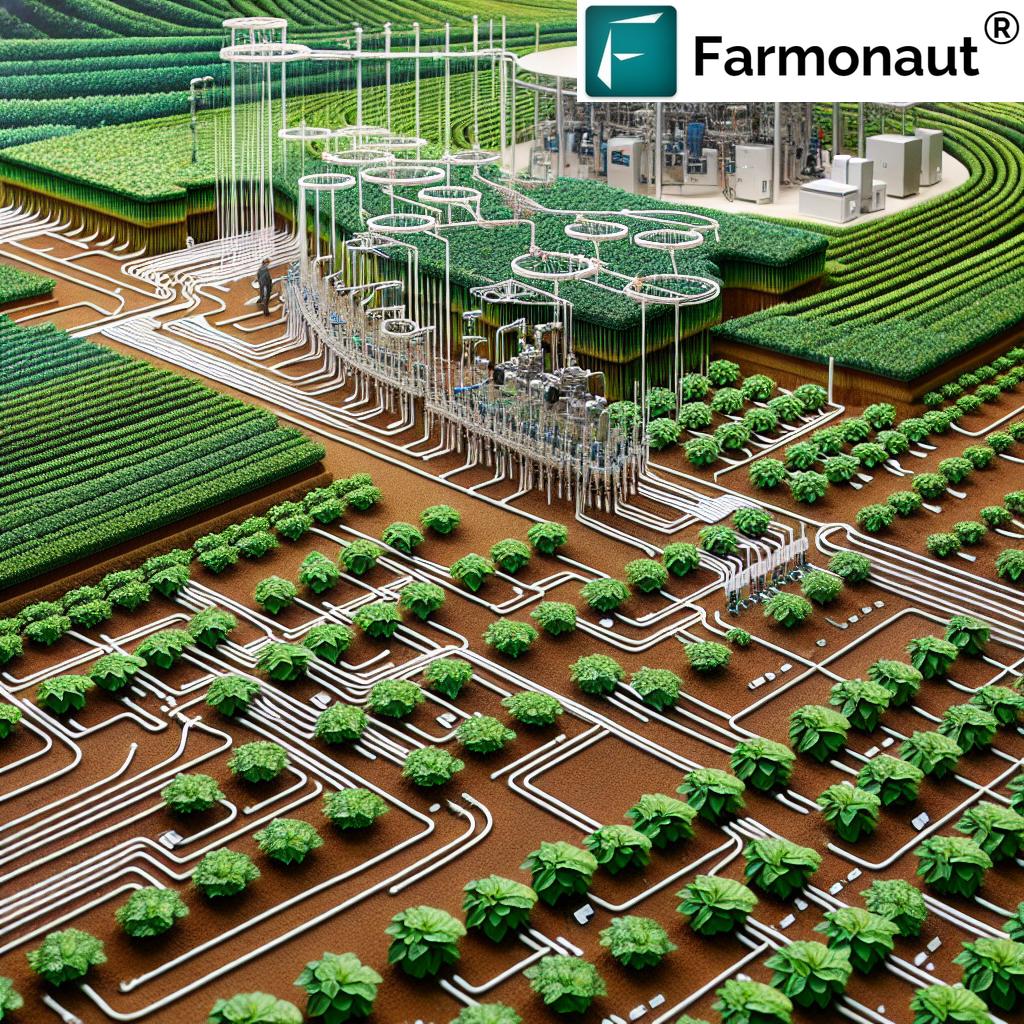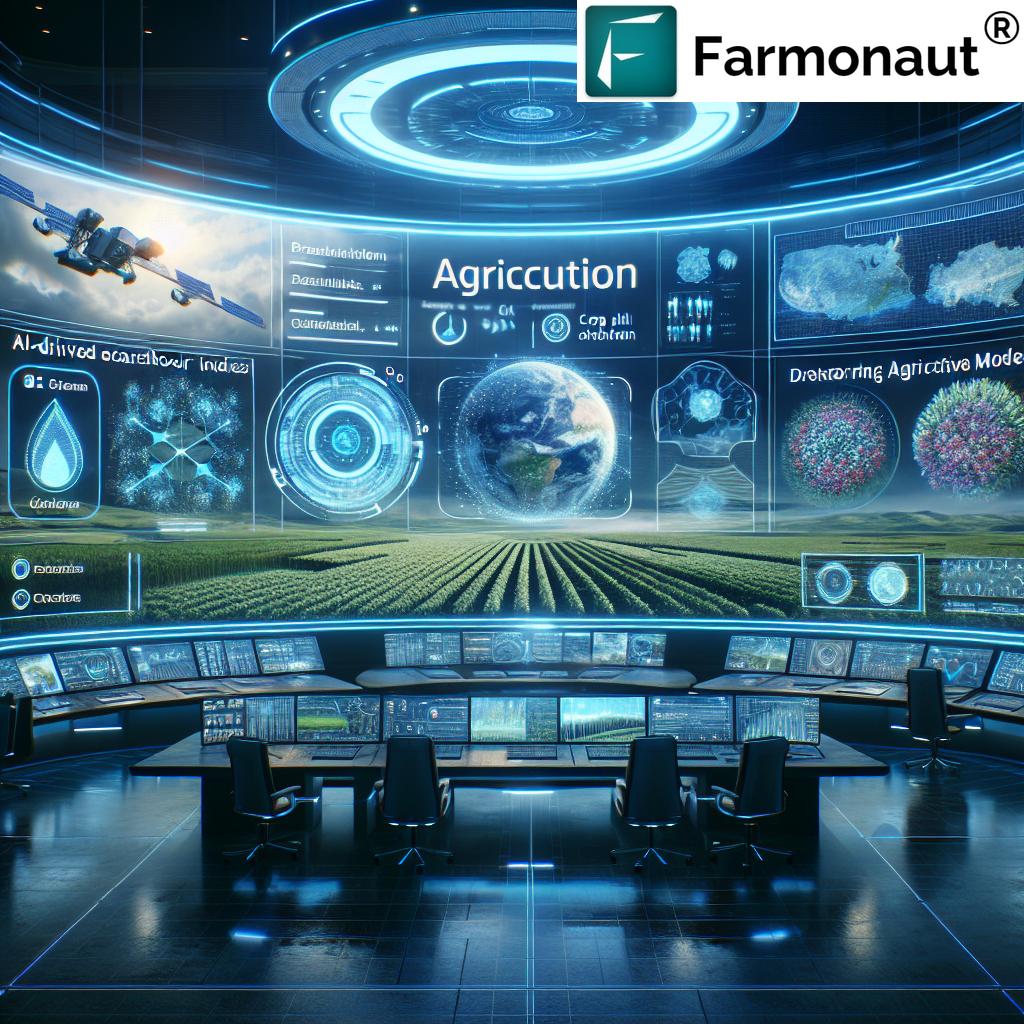Revolutionizing Midwest Farming: How AI and Satellite Crop Monitoring Boost Corn Yields and Farm Productivity
“AI-powered satellite crop monitoring can increase corn yields by up to 20% in Midwest farms.”
Welcome to the future of agriculture in the heartland of America! In this comprehensive guide, we’ll explore how cutting-edge AI in agriculture and precision farming solutions are transforming Midwest farming practices, particularly in corn production. At Farmonaut, we’re at the forefront of this agricultural revolution, empowering farmers with data-driven insights to optimize their yields and boost farm productivity.
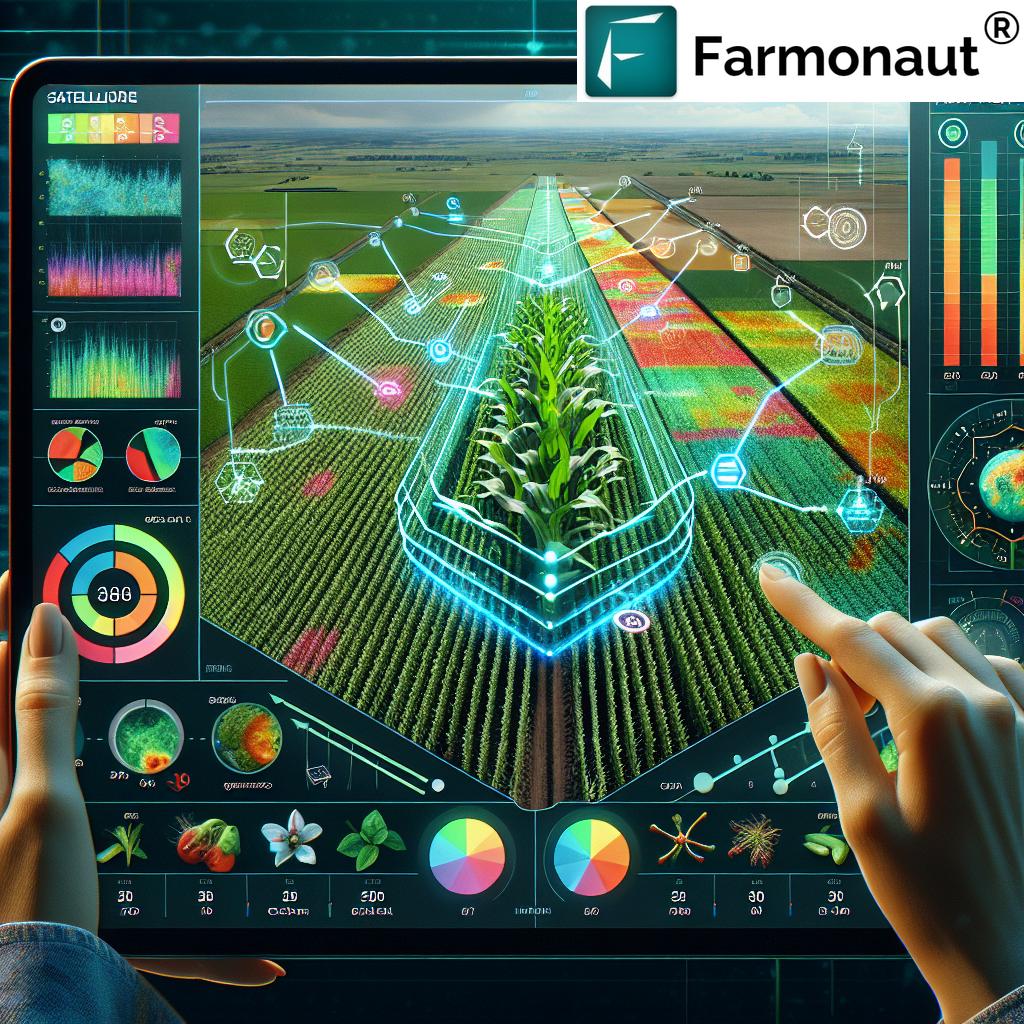
The Rise of AI and Satellite Technology in Midwest Agriculture
The Midwest, often referred to as America’s Corn Belt, has long been the backbone of U.S. agricultural production. However, with increasing challenges such as climate change, resource scarcity, and market volatility, farmers are turning to innovative technologies to maintain their competitive edge. This is where AI in agriculture and satellite crop monitoring come into play, revolutionizing traditional farming methods.
- Satellite Imagery: Provides real-time data on crop health and field conditions
- Artificial Intelligence: Analyzes complex data sets to offer actionable insights
- Machine Learning: Improves predictions and recommendations over time
- IoT Sensors: Collect on-ground data to complement satellite information
These technologies work in tandem to create a comprehensive agricultural data analytics system that transforms how Midwest farmers approach corn cultivation.
Satellite Crop Monitoring: A Game-Changer for Corn Farmers
Satellite crop monitoring is at the heart of the precision agriculture revolution. By leveraging multispectral imagery and advanced algorithms, we at Farmonaut provide farmers with unprecedented insights into their fields.
- NDVI (Normalized Difference Vegetation Index): Measures crop health and vigor
- Soil Moisture Analysis: Helps optimize irrigation schedules
- Crop Stress Detection: Identifies areas of pest infestation or nutrient deficiency
- Yield Forecasting: Predicts harvest outcomes with increasing accuracy
These insights enable farmers to make data-driven decisions, leading to more efficient resource use and higher corn yields.
AI-Powered Agricultural Decision Support Systems
Artificial Intelligence is the engine that drives modern precision farming solutions. At Farmonaut, our AI-powered systems analyze vast amounts of data from satellites, weather stations, and on-field sensors to provide tailored recommendations for Midwest corn farmers.
- Personalized Planting Schedules: Optimize planting dates based on local conditions
- Smart Fertilizer Application: Recommend precise nutrient application rates
- Pest and Disease Forecasting: Predict and prevent potential outbreaks
- Harvest Timing Optimization: Determine the ideal time for harvesting
These AI-driven insights help farmers make informed decisions that can significantly impact their corn yields and overall farm productivity.
Smart Irrigation Systems: Maximizing Water Efficiency
“Farmonaut’s precision farming solutions have helped reduce water usage by 30% through smart irrigation systems.”
Water management is crucial in corn cultivation, and smart irrigation systems are revolutionizing how Midwest farmers approach this critical aspect. By integrating satellite data, weather forecasts, and soil moisture sensors, these systems provide precise irrigation recommendations.
- Real-time Soil Moisture Monitoring: Ensures optimal water levels
- Weather-based Irrigation Scheduling: Adjusts watering based on forecasts
- Deficit Irrigation Strategies: Maximizes water use efficiency
- Remote Control and Automation: Allows for precise water application
With these advanced irrigation technologies, Midwest corn farmers can significantly reduce water waste while improving crop yields.
Digital Farm Management: Streamlining Operations
Digital farm management tools are essential for modern corn farmers in the Midwest. These platforms integrate various data sources and technologies to provide a comprehensive view of farm operations.
- Field Mapping and Zoning: Optimize land use and crop rotation
- Equipment Tracking and Maintenance: Improve operational efficiency
- Inventory Management: Track inputs and harvested crops
- Financial Planning and Reporting: Enhance business decision-making
By centralizing farm data and operations, these digital tools help Midwest farmers streamline their processes and make more informed management decisions.
Explore Farmonaut’s API for advanced integration
Soil Health Analysis: The Foundation of High Yields
Soil health analysis is fundamental to successful corn cultivation. Advanced technologies now allow for more detailed and frequent soil assessments, enabling farmers to maintain optimal growing conditions.
- Remote Sensing for Soil Properties: Analyze soil composition from satellite data
- IoT Soil Sensors: Provide real-time data on soil conditions
- AI-Powered Nutrient Management: Optimize fertilizer application
- Microbiome Analysis: Understand and enhance soil biodiversity
These advanced soil health tools enable Midwest farmers to make data-driven decisions about soil management, leading to improved corn yields and long-term soil sustainability.
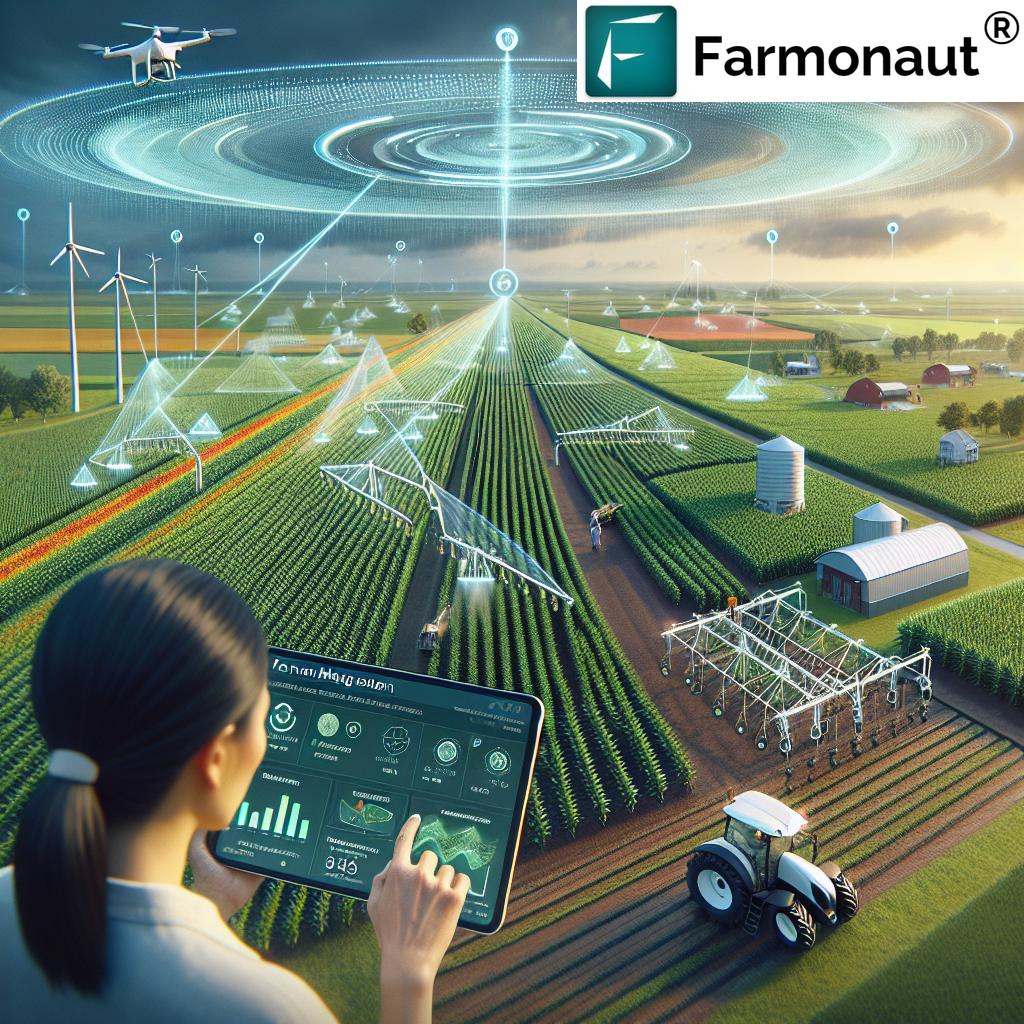
Weather-Based Farming Decisions: Mitigating Climate Risks
In the face of increasing climate variability, weather-based farming decisions are more critical than ever for Midwest corn farmers. Advanced weather forecasting and climate modeling technologies are now integral to farm management.
- Hyperlocal Weather Forecasting: Provides field-specific weather predictions
- Climate Change Impact Analysis: Helps in long-term crop planning
- Extreme Weather Alerts: Enables timely protective measures
- Seasonal Yield Forecasting: Aids in marketing and financial planning
By integrating weather data with other farm analytics, farmers can make more informed decisions about planting, harvesting, and crop protection.
Check out our API Developer Docs for weather integration
Agronomic Insights: Enhancing Corn Production Strategies
Agronomic insights powered by AI and big data analytics are revolutionizing corn production strategies in the Midwest. These insights help farmers optimize every aspect of their corn cultivation process.
- Variety Selection: Choose the best corn hybrids for specific field conditions
- Planting Density Optimization: Determine ideal seed spacing for maximum yield
- Growth Stage Monitoring: Track crop development and adjust management practices
- Yield Gap Analysis: Identify and address factors limiting crop potential
By leveraging these advanced agronomic insights, Midwest farmers can fine-tune their corn production strategies for optimal results.
Pest Management Technology: Protecting Corn Yields
Effective pest management is crucial for maintaining high corn yields. Modern technologies are transforming how Midwest farmers approach this challenge.
- AI-Powered Pest Identification: Quickly diagnose pest issues from images
- Predictive Pest Modeling: Forecast pest outbreaks based on environmental data
- Precision Pesticide Application: Target treatments to affected areas only
- Biological Control Integration: Optimize the use of natural pest enemies
These advanced pest management tools help farmers protect their corn crops more effectively while reducing pesticide use and environmental impact.
Corn Yield Forecasting: Precision in Prediction
Corn yield forecasting has reached new levels of accuracy with the integration of AI, satellite data, and on-ground sensors. This advanced forecasting helps Midwest farmers in various aspects of farm management.
- Early Yield Estimates: Plan harvesting and storage logistics
- In-Season Yield Adjustments: Adapt management practices for optimal outcomes
- Field Variability Mapping: Identify high and low-performing areas
- Market Planning: Make informed decisions about grain sales and contracts
Accurate yield forecasting empowers farmers to make data-driven decisions throughout the growing season, ultimately improving their bottom line.
Agricultural AI Applications: Beyond Crop Monitoring
The applications of AI in Midwest agriculture extend far beyond crop monitoring. These agricultural AI applications are transforming various aspects of farm management.
- Automated Equipment Guidance: Improve precision in planting and harvesting
- Robotic Weed Control: Reduce herbicide use through targeted interventions
- AI-Powered Grain Marketing: Optimize selling decisions based on market trends
- Farm Labor Management: Efficiently allocate human resources across operations
These AI applications are helping Midwest corn farmers increase efficiency, reduce costs, and improve overall farm productivity.
Generative AI and Language Models in Agriculture
The emergence of generative AI and advanced language models is opening up new possibilities in agricultural advisory services. These technologies are revolutionizing how farmers access and interact with agricultural information.
- Natural Language Crop Advisories: Provide easy-to-understand recommendations
- Chatbot Farm Assistants: Offer 24/7 support for common farming queries
- Automated Report Generation: Create detailed farm analysis reports
- Multilingual Support: Break language barriers in agricultural knowledge sharing
These AI-powered communication tools are making advanced agricultural insights more accessible to Midwest farmers of all backgrounds.
Data-Driven Agriculture: The Future of Midwest Farming
Data-driven agriculture is not just a trend; it’s the future of farming in the Midwest and beyond. By leveraging the power of data analytics, AI, and satellite technology, farmers can make more informed decisions at every stage of crop production.
- Predictive Analytics: Anticipate challenges and opportunities
- Prescriptive Recommendations: Receive tailored advice for specific farm conditions
- Continuous Optimization: Improve practices based on historical and real-time data
- Sustainable Resource Management: Maximize efficiency while minimizing environmental impact
Embracing data-driven agriculture allows Midwest corn farmers to stay competitive in a rapidly changing agricultural landscape.
Sustainable Farming Technologies: Balancing Productivity and Conservation
Sustainable farming technologies are crucial for the long-term viability of Midwest agriculture. These innovations help farmers increase productivity while preserving natural resources.
- Precision Conservation: Target conservation efforts to high-impact areas
- Carbon Sequestration Monitoring: Track and optimize soil carbon levels
- Water Quality Management: Reduce agricultural runoff and protect waterways
- Biodiversity Enhancement: Integrate wildlife corridors and beneficial insects
By adopting these sustainable technologies, Midwest corn farmers can ensure the long-term health of their land while maintaining high yields.
Agricultural Decision Support Systems: Empowering Farmers
Agricultural decision support systems are comprehensive platforms that integrate various data sources and analytics tools to aid farmers in making complex decisions. These systems are particularly valuable for Midwest corn farmers facing multiple variables in their operations.
- Scenario Planning: Evaluate different management strategies
- Risk Assessment: Analyze potential impacts of various factors on yield
- Resource Allocation Optimization: Maximize returns on inputs
- Compliance Management: Ensure adherence to regulations and certifications
These advanced decision support systems empower farmers to navigate the complexities of modern agriculture with confidence.
Comparative Analysis: Traditional vs. AI-Powered Satellite Crop Monitoring
| Farming Aspect | Traditional Method | Farmonaut Satellite System |
|---|---|---|
| Irrigation Management | Manual field checks, experience-based decisions | AI-powered soil moisture analysis, 30% increase in water use efficiency |
| Pest Detection | Regular field scouting, reactive approach | Early detection through spectral analysis, 40% reduction in crop damage |
| Yield Forecasting | Historical data and visual estimates | AI models with 90% accuracy, updated throughout the season |
| Fertilizer Application | Uniform application based on soil tests | Variable rate application, 25% reduction in fertilizer use |
| Time Efficiency | Time-consuming manual inspections | 50% reduction in field inspection time |
| Environmental Impact | Higher resource use, potential over-application | 20% reduction in overall environmental footprint |
The Road Ahead: Integrating AI and Satellite Technology in Midwest Farming
As we look to the future of Midwest corn farming, the integration of AI and satellite technology will continue to play a pivotal role in driving productivity and sustainability. At Farmonaut, we’re committed to staying at the forefront of these innovations, providing farmers with the tools they need to thrive in an ever-changing agricultural landscape.
By embracing these advanced technologies, Midwest corn farmers can:
- Optimize resource use for maximum efficiency
- Increase crop yields while reducing environmental impact
- Adapt more effectively to climate change challenges
- Make data-driven decisions with greater confidence
- Contribute to a more sustainable and productive agricultural sector
The future of Midwest corn farming is bright, powered by the synergy of human expertise and cutting-edge technology. Together, we can revolutionize agriculture and ensure a prosperous future for farms across the heartland.
FAQ: AI and Satellite Crop Monitoring in Midwest Corn Farming
Q: How accurate is satellite-based crop monitoring?
A: Modern satellite crop monitoring systems, like those used by Farmonaut, can achieve accuracy levels of up to 95% in detecting crop health issues and predicting yields.
Q: Can small-scale farmers benefit from these technologies?
A: Absolutely! Many AI and satellite monitoring solutions are scalable and can be cost-effective even for small farms, providing valuable insights that improve productivity and profitability.
Q: How often is satellite data updated?
A: Depending on the service, satellite data can be updated daily or weekly, providing near real-time information on crop conditions.
Q: Does AI replace the need for on-ground observations?
A: While AI significantly reduces the need for manual field scouting, it doesn’t entirely replace on-ground observations. Instead, it helps farmers target their field visits more effectively.
Q: How do these technologies impact farm labor?
A: AI and satellite technologies often lead to more efficient use of farm labor, allowing workers to focus on high-value tasks rather than routine monitoring.
Conclusion: Embracing the Future of Midwest Corn Farming
The integration of AI, satellite crop monitoring, and other advanced technologies is ushering in a new era of precision and productivity in Midwest corn farming. By leveraging these innovative tools, farmers can make more informed decisions, optimize their resources, and boost their yields while promoting sustainable practices.
At Farmonaut, we’re proud to be at the forefront of this agricultural revolution, providing cutting-edge solutions that empower farmers to meet the challenges of modern agriculture head-on. As we continue to innovate and refine our technologies, we remain committed to our mission of making precision agriculture accessible and affordable for farmers across the Midwest and beyond.
The future of corn farming in the Midwest is bright, driven by the power of data, AI, and satellite technology. Together, we can build a more productive, sustainable, and resilient agricultural sector that will continue to feed the world for generations to come.





